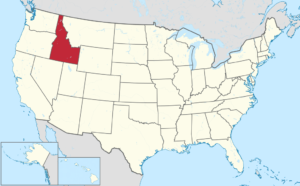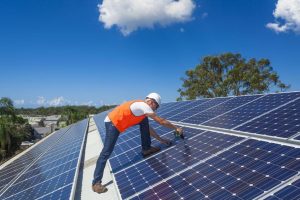 In 2019, there were attempts to destroy the net metering efforts in Idaho actively. In December of 2020, the Public Service Commission in Idaho prevented persons with new systems from receiving the old rates given in the past for excess energy. However, if you’re thinking of making the switch into solar systems, you might be in luck to receive even lower credits.
In 2019, there were attempts to destroy the net metering efforts in Idaho actively. In December of 2020, the Public Service Commission in Idaho prevented persons with new systems from receiving the old rates given in the past for excess energy. However, if you’re thinking of making the switch into solar systems, you might be in luck to receive even lower credits.
So, read on as we dive into the following:
- Types of incentives available in the state of Idaho
- The types of incentives that you can qualify for based on the utility company of your choice
- You’ll be able to determine how much the incentives will reduce your cost when you switch from the grid to solar
Contents
- 1 Key Takeaways
- 2 Federal Solar Investment Tax Credit
- 3 Net Energy Metering In Idaho
- 4 Idaho Solar Rebates
- 5 State Tax Deduction
- 6 Case Study: Navigating Solar Panel Installation in Boise, Idaho
- 7 Expert Insights From Our Solar Panel Installers About Solar Panel Laws in Idaho
- 8 Experience Solar Excellence with Us!
- 9 Conclusion
Key Takeaways
- The federal solar investment tax credit (ITC) is crucial in determining Idaho’s solar energy cost. The solar tax credit provides a 30% credit between 2022 and 2032.
- Idaho lacks laws mandating net metering services for residents, and interconnectivity rules are absent due to pre-2020 regulations. Some state-owned utilities offer net metering, but this situation is temporary, pending the Public Utility Commission (PUC) resolution.
- Idaho offers a unique state tax deduction, allowing for a 100% deduction of up to 40% of the first year’s installation cost (capped at $5,000), with an additional 20% deduction for three more years, offering substantial savings for solar panel installation.
Federal Solar Investment Tax Credit
If you didn’t already know, the federal solar investment tax credit is the deciding factor that determines the cost of solar energy within the state of Idaho. As such, this advantage is better known as the ITC. ITC means Investment Tax Credit.
If you install a solar panel system between 2022 and 2032, you can take advantage of the 30% federal tax credit. This means you would have gotten up to 30% off your system, including permitting, labor, and equipment. The following serves as an illustration of this:
If your solar panel system’s initial cost were $20,000, it would mean that your solar tax credits would then be 30% x $20,000. This comes up to $6,000.
So, if you’re still interested in solar energy, it’s still a good time to install your solar system in Idaho to take advantage of the federal tax credit incentive.

Net Energy Metering In Idaho
Currently, some states offer their residents full retail credit on their systems. However, this heavily depends on the electricity generated and sent to the grid via solar panels.
If you didn’t already know, net metering involves monitoring the amount of energy generated. Besides this, the amount used is also considered, and the excess is used to obtain credits.
Unlike many other factors, this one is a considerable part of the state’s solar policies since it allows residents to save some cash. That said, Idaho currently has no laws that insist that companies provide net metering services to residents.
There’s also none in place for interconnectivity, and those who install these panels will not be able to benefit from net metering services. This is due to the pre-2020 rules that the government drafted. Thus far, state-owned utilities have gone above and beyond and decided to offer their customers this service.
However, this is only done until the PUC can rectify the issue. For the most part, all of the programs offered are very similar to the system size limitations. Reports have indicated that this doesn’t affect homeowners much at all.
In essence, companies facilitate net metering in the following way:
When a customer’s system produces a surplus of energy, it is converted into credit that is then applied to the following month’s bill. This means that when you produce any extra kW in one month, you can pay for less in the upcoming month.
However, Avista specifies that their credits usually convert back into a utility that isn’t compensated after 12 months have passed. Rocky Mountain Power and Idaho Power have not successfully addressed annual surplus or rollover limits in their policies.
With that said, both Rocky Mountain Power and Idaho Power have already given pleas for silents to pay less than retail rates. However, the PUC has denied the requests for this incentive. As such, industry experts have stated that now is the perfect time to switch to solar panels.
Idaho Solar Rebates
The state doesn’t offer residents the option of cash rebates for switching to solar power, and there isn’t much else offered. However, we hope the state offers this to its residents soon to help them get into renewables. With that said, most of the residents have actively started switching to solar systems despite this.

State Tax Deduction
Idaho has decided to use a more innovative way to install solar panels. They’ve decided to enact a full 100% tax deduction. This means that if you’re installing a system, you can easily use up to 40% of the first year’s cost up to a max of $ 5,000.
For the upcoming three years, you’ll then be able to deduct the remaining 20% from your income tax. If your system is 6kW and costs $18000 for the installation, you can remove $7200 from your state income.
All of this can be achieved during the first year. Within the following three years, you’ll be able to receive $3600.
Over the four years, you can expect your deductions to be worth at least $1100.
Background
At Solar Panels Network USA, we aim to help homeowners maximize their benefits from solar installations despite the regulatory challenges. Recently, we worked with a family in Boise, Idaho, to install a residential solar panel system, leveraging state and federal incentives to reduce costs and enhance energy savings.
Project Overview
The homeowner’s primary goals were to lower their energy bills, utilize available tax incentives, and contribute to environmental sustainability. Given Idaho’s evolving solar policies, we developed a comprehensive plan to ensure the project’s financial feasibility and regulatory compliance.
Implementation
We began with a detailed site assessment to determine the optimal placement for the solar panels. The proposed system was designed to maximize energy production while complying with local regulations and utility guidelines.
Calculating and Applying Tax Credits
The total installation cost for the 6 kW solar panel system was $18,000. Leveraging the Federal Solar Investment Tax Credit (ITC), we calculated a 30% credit, resulting in a $5,400 reduction in the upfront cost. Additionally, Idaho’s state tax deduction allowed the homeowner to deduct 40% of the installation cost in the first year, translating to a $7,200 deduction from their state income tax. Over the next three years, the homeowner would deduct an additional 20% each year, amounting to $3,600.
Net Metering and Utility Engagement
Although Idaho lacks mandatory net metering laws, we engaged with the local utility, Idaho Power, which offers voluntary net metering services. This involved configuring the system to track energy production and consumption accurately. Any surplus energy generated was converted into credits, applied to subsequent bills, significantly reducing the homeowner’s monthly energy costs.
State Tax Deduction Utilization
Idaho’s unique tax deduction scheme was a major financial relief for the project. By applying the 100% deduction on up to 40% of the first year’s installation cost, the homeowner received a substantial tax break. The remaining costs were deducted over the next three years, maximizing the financial benefits of the solar installation.
Results
The installation was completed smoothly, with the solar panels now fully operational and generating clean, renewable energy. The homeowner’s electricity bills were significantly reduced, thanks to the net metering credits. The state and federal tax incentives further lowered the effective cost of the system, making the investment highly cost-effective.
Financial Savings Breakdown
- Initial system cost: $18,000
- Federal Tax Credit (30%): $5,400
- State Tax Deduction (40% first year): $7,200
- Additional State Deductions (20% each year for three years): $3,600
The combined tax incentives and energy savings provided a significant return on investment, encouraging more residents to consider solar energy despite regulatory challenges.
Summary
This case study demonstrates how residents in Boise, Idaho, can effectively navigate the complexities of solar panel laws and incentives. By leveraging the federal solar investment tax credit and Idaho’s state tax deduction, homeowners can achieve substantial financial savings while contributing to a cleaner environment. At Solar Panels Network USA, we are dedicated to helping our clients understand and maximize these opportunities, ensuring their solar investments are both environmentally and financially rewarding.
Expert Insights From Our Solar Panel Installers About Solar Panel Laws in Idaho
Understanding the intricacies of Idaho’s solar panel laws is crucial for homeowners. The state’s unique tax deduction, which allows for a 100% deduction of up to 40% of the installation cost in the first year, provides a substantial financial benefit despite the absence of net metering mandates.
Senior Solar Installer
The federal solar investment tax credit remains a significant incentive for Idaho residents. By leveraging the 30% federal tax credit, homeowners can reduce their initial investment, making solar energy a more accessible and cost-effective option.
Lead Solar Technician
Even though Idaho lacks comprehensive net metering laws, state-owned utilities often step up to offer net metering services. This makes now an excellent time for residents to switch to solar and start saving on energy costs while these programs are still available.
Solar Installation Expert
Experience Solar Excellence with Us!
Trust in Solar Panels Network USA, where our seasoned experts deliver top-quality solar solutions for homes and businesses nationwide. With a legacy of countless successful installations and a commitment to sustainable energy, we’re your reliable partner in the solar journey. Ready for a brighter, eco-friendly future? Call us now at (855) 427-0058 and harness the power of the sun!
Conclusion
As we conclude, we have just looked at the solar panel laws in Idaho. While this venture may not have incentives, you can still look forward to the state tax deduction offered.
When you switch to solar panels, you’ll make the environment cleaner while saving some cash.
Map image by Wikimedia Commons User: TUBS / CC-BY-SA-3.0
About the Author
Solar Panels Network USA stands at the forefront of solar energy solutions, driven by a team of seasoned solar engineers and energy consultants. With over decades of experience in delivering high-quality solar installations and maintenance, we are committed to promoting sustainable energy through customer-centric, tailored solutions. Our articles reflect this commitment, crafted collaboratively by experts to provide accurate, up-to-date insights into solar technology, ensuring our readers are well-informed and empowered in their solar energy decisions.

